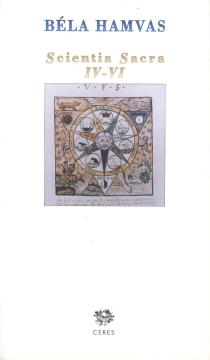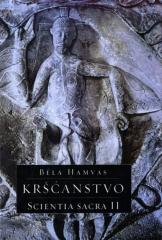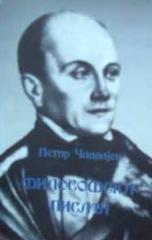
Scientia Sacra IV-VI
Scientia Sacra IV-VI, part of the extensive life's work of Hungarian philosopher Béla Hamvas, is a continuation of his monumental study of the spiritual traditions of humanity, begun in the first three volumes.
This collection of essays deepens Hamvas's analysis of the spiritual and metaphysical dimensions, focusing on initiation, Christianity, and the universal tradition. Hamvas, known for his erudition and synthesis of Eastern and Western spiritual teachings, explores how ancient wisdom manifests itself in different cultures and eras.
In the fourth volume, entitled A beavatás (Initiation), Hamvas addresses the concept of initiation, especially through the teachings of Hermes Trismegistus. He analyzes the rituals of the second birth, mystical consciousness, and the path to spiritual enlightenment, emphasizing the vertical direction of spiritual development, in contrast to the materialistic, horizontal approach of modern man. The fifth volume deepens these themes, exploring the relationship between myth, metaphysics, and cult, with an emphasis on archetypal images and their role in the preservation of spiritual consciousness.
The sixth volume, focused on Christianity, specifically considers the gospel message and its unity with archaic traditions. Hamvas argues that Christianity, especially Jesus' message of unity ("that they may all be one"), represents the culmination of a universal spiritual tradition. He connects Christian concepts with Vedanta, Taoist, and other teachings, emphasizing the universality of spiritual knowledge. The book criticizes modern materialism and the spiritual crisis, calling for a return to "sacred science" (scientia sacra) that integrates knowledge, faith, and intuition.
Hamvas's style is poetic yet demanding, imbued with a deep understanding and critique of contemporary society. The work is key to understanding his vision of tradition as a living, universal spiritual reality, relevant to the contemporary world.
One copy is available




